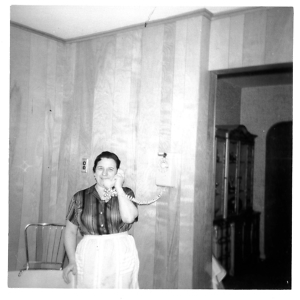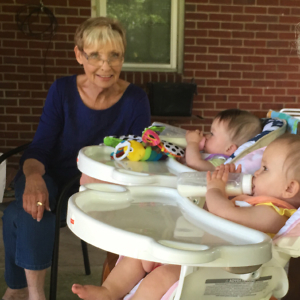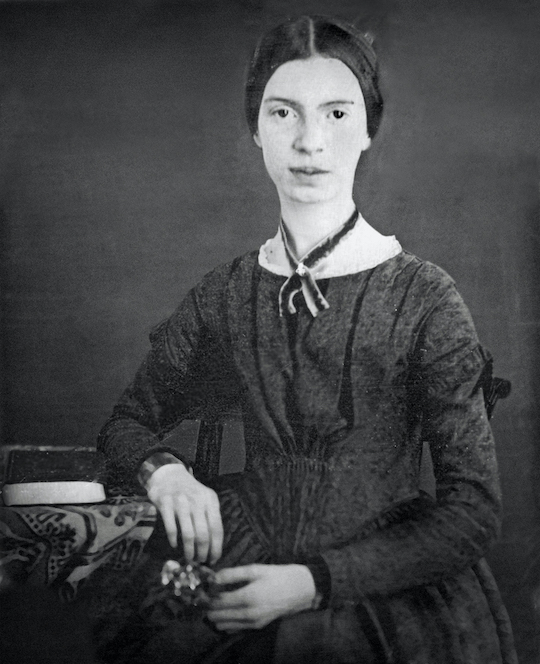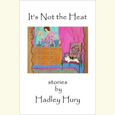Honey and a Ham Sandwich
Remembering the comforts of a grandmother’s love
FROM THE CHAPTER 16 ARCHIVE: This essay originally appeared on November 17, 2017.
***
If I’m ever in the unfortunate position of having to choose my last meal, I will choose a ham sandwich on lightly-toasted Pepperidge Farm bread and a cup of tea with milk and sugar. This is what I ate for lunch with my grandmother most afternoons when I was in grammar school. I went to St. Nicholas in the Heights section of Jersey City. The school was only a few blocks away from the house where we lived–my mom, dad, brother and sister on the top floor; my grandmother and grandfather on the first floor. My grandfather died when I was eight, right around the age when I started walking to and from school myself.

My grandmother, whom I called Nanny, would have the sandwich and tea ready for me when I got home for lunch. We’d chat about whatever was on either of our minds, and then she’d send me back to school with a quarter. There was a grocery store on the corner in between my house and school, and I’d use the quarter to pick up a bag of Wise potato chips on the way back.
Nanny wasn’t my biological grandmother, but she was the only grandmother I knew. My father’s parents died before I was born. My mother’s mother died of complications from gallbladder surgery when my mother was fourteen. My grandfather was left with two teenage daughters, one who had an intellectual disability, and two younger sons. He knew he needed help. He met and married Mary, whom he and my mother and her siblings called Mae, about three years later. She was an extraordinary woman. She worked for the International Telephone & Telegraph (ITT) company in Manhattan and became a mentor to my mother, introducing her to New York and the arts and helping her get her first job, as a personal secretary at JP Morgan. She loved my mother and her siblings as her own.
It was the same with her grandkids. She took full advantage of our proximity to New York and would pack us and our friends in her late-’70s blue Nova to take us to Liberty State Park in downtown Jersey City, and onto the ferries to Ellis Island and The Statue of Liberty. It didn’t occur to me then—I figured we needed something to do in the summer and she was happy to be our chaperone—that she probably had a strong sense of history and that these trips were her way of introducing it to us. Like us, she was of Italian descent. Her ancestors were greeted by the same Statue of Liberty and came through the same Ellis Island as ours. We may not have been blood kin, but we came from the same blood.
She was funny, too, especially on these field trips. One time she rear-ended another driver on the way back to the house. The guy got out of the car, came up to her driver’s-side window, and started screaming at her in Spanish. None of us knew what he was saying, but she calmly pulled a five-dollar bill out of her purse and told him, in English, to go buy himself a soda. Flummoxed, he fell silent. Then he took the money and walked back to his car.

Nanny died when I was nineteen of complications from a brain tumor. My mother, with whatever help my sister and I could provide, took care of her while she lay in a hospital bed in her living room. Our lunchtime ritual had long-since come to an end, but her death sparked a change in my family that in many ways we never recovered from. My mother’s family fell apart, and my parents divorced. My siblings and I went our separate ways. Looking back, it’s clear that my mother was already struggling with an undiagnosed mood disorder and early-onset dementia.
I’ve long known that a ham sandwich on lightly-toasted Pepperidge farm bread and a cup of tea with milk and sugar would be my preferred last meal, but it’s only now that I realize why. Sure, it’s comfort food, taking me back to those charming afternoons with Nanny. But it’s also the taste of “before.” Before estrangement. Before dementia. Before experience.
My wife and I have one-year-old twin daughters who were conceived with the aid of an egg donor. Late last year, my mother-in-law moved in with us. It’s a mutually beneficial arrangement. She has her own room and bathroom on one side of the house, and we have built-in help in the mornings and evenings, before and after work. We both save money. There are less tangible benefits, too, like the joy my mother-in-law experiences every time she walks into the kitchen in the morning or into the house after work and sees those two small faces smiling back at her.
The biggest winners are my daughters, who get to spend time with Honey, as she prefers to be called, in the same way that I got to spend time with Nanny. Fridays belong only to them, and there is always plenty of babbling going back and forth. Like Nanny, Honey may not be blood kin, but you’d never know it from the way she loves the girls, and the way they love her.
Times have changed. Eating ham on white bread and following it with a bag of chips every day is no longer an acceptable lunch, even if Honey, who’s a bit old-school, disagrees. But there’s a Catholic grammar school around the corner from where we live that I hope we can afford for the girls to attend in a few years. Maybe some things haven’t entirely changed.
We all have a “before” and an “after” in our lives. I wish my daughters would never have to face an “after,” but at least I know they’re having the sweetest “before” I can imagine.
 Copyright © 2017 by Joe Pagetta. All rights reserved. Born and raised in Jersey City, New Jersey, Pagetta is a Nashville essayist and arts writer whose work has appeared in the Nashville Scene, America, PBS.org, Media Shift, Nashville Arts, My Modern Met and—if you count the time it published an excerpt of his letter to novelist Colum McCann about his fashion sense—Esquire.
Copyright © 2017 by Joe Pagetta. All rights reserved. Born and raised in Jersey City, New Jersey, Pagetta is a Nashville essayist and arts writer whose work has appeared in the Nashville Scene, America, PBS.org, Media Shift, Nashville Arts, My Modern Met and—if you count the time it published an excerpt of his letter to novelist Colum McCann about his fashion sense—Esquire.

